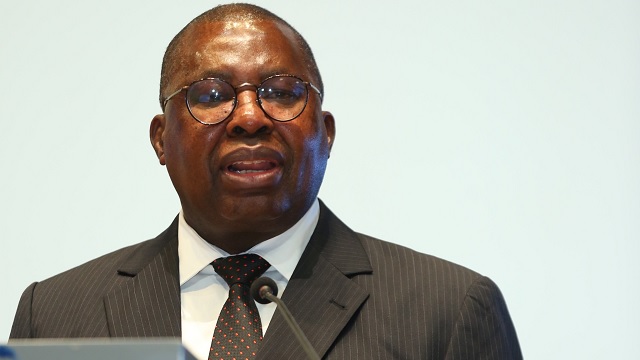
Addis Ababa, Ethiopia | Xinhua | Albert Muchanga, African Union Commissioner for Economic Development, Trade, Tourism, Industry and Minerals has called for pragmatic interventions to inject dynamism into Africa’s inclusive and sustainable industrialization.
The AU commissioner made the remarks at the joint meeting of African ministers in charge of industry and economic diversification that was held in Niger’s capital, Niamey on Monday, an AU statement indicated.
“Let us give life and dynamism to Africa’s inclusive and sustainable industrialization through pragmatic interventions that yield measurable and tangible outcomes of innovation, competitiveness, output, value addition, employment and, among others and above all, improved livelihoods of ordinary Africans,” Muchanga said.
He emphasized the need to build institutions and implement the right policies that create enabling business environment for the formalization of the private sector as well as enhance industrial policy coherence necessary for the effective implementation of industrial development programs and projects through appropriate monitoring and evaluation of outcomes.
Muchanga said, in line with these needs, the AU proposes the designation of an AU Champion on Industrialization and Productive Transformation, who will provide political leadership, raise awareness and ensure effective implementation of Africa’s industrial development.
He further noted that infrastructure and energy are essential to industrialization, as he highlighted the bad state of Africa’s electricity, water, road and information and communications technology.
He noted that the infrastructure deficits “impose high costs on industries by reducing competitiveness, which in turn restricts access to local and international markets.”
“Africa faces a huge infrastructure gap, with only 4 percent of the Continent’s Gross Domestic Product allocated to infrastructure development yearly,” Muchanga said.
The AU commissioner underscored infrastructure development as a crucial imperative to attain development.
“It is clear that bridging the infrastructure gap is essential to unlocking Africa’s industrialization potential, which, if exploited, can increase GDP growth by an estimated 2 percentage points annually,” he said.
He also highlighted the need for appropriate financing mechanisms to support Africa’s industrialization.
Financing of Africa’s industrialization and economic diversification has to be increasingly based on domestic public and African private sector resources. For that to happen, there is a need to explore untapped financial approaches and mechanisms, Muchanga said.
 The Independent Uganda: You get the Truth we Pay the Price
The Independent Uganda: You get the Truth we Pay the Price





